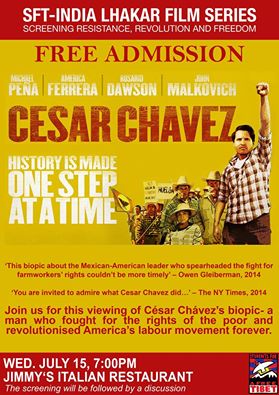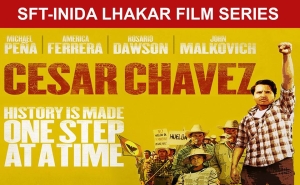On July 15th we screened the biopic César Chávez: History is Made One Step At a Time. This movie tells the story of the non-violent civil rights leader César Chávez, who fought for the rights of the farm workers during the 1960s and 1970s in America. Chávez founded the National Farm Workers Association, through which he battled the owners of the farms through non-violent tactics. Their major instrument of struggle consisted of strikes and boycott.
César Chávez’s movement turned out to be a success. In the end he managed to come to an agreement with the farm owners. From this point we discussed what inspiration we can draw from the Tibetan movement from this movie. One major point was that we should try to collaborate more with the Chinese people in exile. If we could get their support our movement would be strengthened. Another essential resource that César Chávez had was the media. Through media he could spread his story of the injustice happening to the farmworkers and mobilize the people all around the world. This then put pressure on the landowners. We discussed how we still could improve the presence of the Tibetan issue in the media.
The movie showed us many nonviolent instruments that we could use for the Tibetan movement. Since César Chávez’s movement was a success story, it helped us confirm SFT’s belief in nonviolence.

